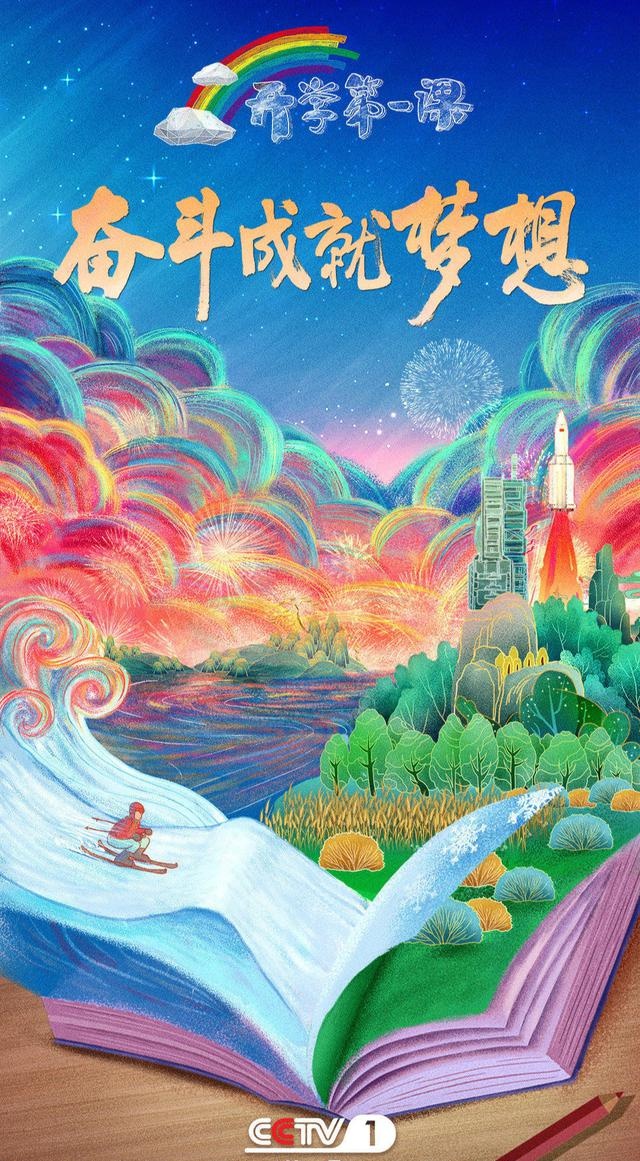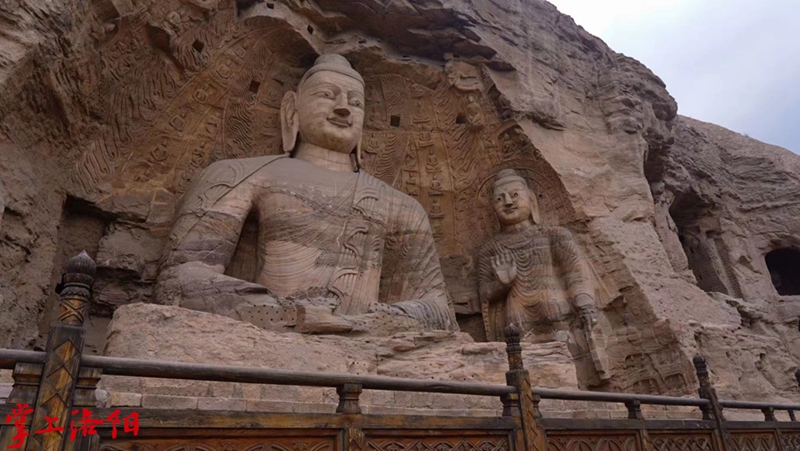"Lesson First Class" tells the story of rice 10,000 years ago. Experts: Hubei is also one of the origin of the Yangtze Rice Civilization
Author:Changjiang Daily Time:2022.09.02

CCTV "Lesson No. 1" poster.
The Yangtze River Daily Da Wuhan Client September 2 (Reporter Wan Jianhui) At 8 pm on September 1st, "Lesson First Class" in 2022 was broadcast on the CCTV Comprehensive Channel of Central Radio and Television, the Ministry of History of the Chinese Academy of Social Sciences Director and researcher Wang Wei ascended the stage to tell the classmates "The Story of a Grack of Rice", which introduced Zhejiang's upper mountain site and Shangshan culture. The reporter interviewed archeologists that Hubei was also one of the origin of the Yangtze River's civilization.

"The First Lesson of the Starting School" Wang Wei told the story of rice 10,000 years ago.
The mountain is located in Shangshan Village, Huangzhai Town, Pujiang County, Zhejiang Province. The upper mountain site was found in 2000. It was a new cultural site in the early Neolithic era that was around 10,000 years ago. In November 2006, "Shangshan Culture" was officially named. As of now, 20 counties and cities in 4 cities including Jinhua, Luzhou, Shaoxing, and Taizhou, Zhejiang Province have found 20 cultural sites in Shangshan. The mountain is the origin of the world's rice -made agriculture; the mountain culture is the source of the culture of Chinese farming villages; the colorful pottery of the upper mountain culture is the earliest colorful pottery in the world.

Wang Wei, director and researcher of the Department of History of the Chinese Academy of Social Sciences.
Wang Wei said that the origin of agriculture is the basis of the origin of civilization. At the beginning of the lecture, he pulled out a photo of the carbonized rice unearthed from the upper mountain site of the Pujiang Province in Zhejiang Province. A grain of rice about 10,000 years ago is the earliest cultivation of the earliest cultivation of rice in China, and it is also the earliest rice in the world.
This rice surprised the host Sabenin: "Are you sure this is a grain of rice?" Wang Wei said at this grain of rice 10,000 years ago. The emergence of this grain of rice shows that the ancestors of the Chinese nation began to cultivate rice 10,000 years ago. They stayed at the field and waited for the seedlings to mature and drew, and began a settlement of settlement. Wang Wei asked everyone to imagine that during the pre -historical period, people originally lived in the cave, wearing bark, litting bonfire caves, and the emergence of rice agriculture, which opened a new era of human development.
Archaeologists discovered early villages in the New Stone Age at the Shangshan site of Zhejiang, and an artificial cultivation of rice relics was unearthed. At that time, archeologists found 3 rows of holes on the ground, forming a matrix of 11 meters long and 6 meters wide. This is the trace of people building a house for thousands of years ago. The size of that size is equivalent to a badminton court, which is amazing that the ancients could build such a large house so early. "This is the earliest building in China, which is the first village in ancient China." 10,000 years ago, in the harsh natural environment, people relied on collective power to survive. Dreams do their best. People started to settle, and rice started its trip.
The changes in the civilization of rice are shocking, and the Liangzhu site is no exception. Wang Wei introduced that there is a high platform in the center of the Liangzhu site, and 200,000 kg of rice was found in the south, which was surprising. From the site of the mountain to the Liangzhu site, after more than 5,000 years of development, the Chinese civilization has undergone tremendous changes.
In the lecture, Wang Wei reviewed the course of the development of a grain of rice in 5000 years. The Chinese civilization has gone through the vicissitudes of the sea, becoming the only civilization that has not been interrupted and continued to this day in several major ancient civilizations in the world. It is inseparable from the toughness of the ancient ancestors to explore the land, and it is inseparable from the long -term struggles of the Chinese children. At the end of the lecture, he cordial expectations for the primary and secondary school students who watched the show: "Back to history and feel the power of 5000 years of civilization surpassing time. We have the responsibility to fight and continue the glory of this civilization."

Fang Qin, Dean of the Hubei Provincial Institute of Cultural Relics and Archeology and the director of the Hubei Provincial Museum.
For Wang Wei's story of rice 10,000 years ago in "The First Lesson First Class", the dean of the Hubei Provincial Cultural Relics and Archeology Research Institute and the Hubei Provincial Museum Gangfang Qin told the Yangtze River Daily reporter that the Site found in the mountain and the Liangzhu site The rice shows the earliest rice civilization of Chinese civilization in the Yangtze River Basin. Not only Zhejiang, but also Hubei is also one of the origin of the Yangtze River's civilization.
Fang Qin said that the Jingzhou Jigongshan site, about 20,000 years ago, is a testimony of human beings from cave to plain life. , Witnessed the origin of about 15,000 to 10,000 years old.
[Edit: Deng La Xiu]
For more exciting content, please download the "Da Wuhan" client in the major application markets.
- END -
On the 29th, the large -scale live broadcast event of "Dragon Gate in the Clouds" was officially opened!

Multi -culture merges, inheritance of thousands of years of context. Today, a repo...
Singapore Media: Three reasons for Singapore's University of Art

Singapore's Straits Times August 31 article, original topic: Why is the establishm...